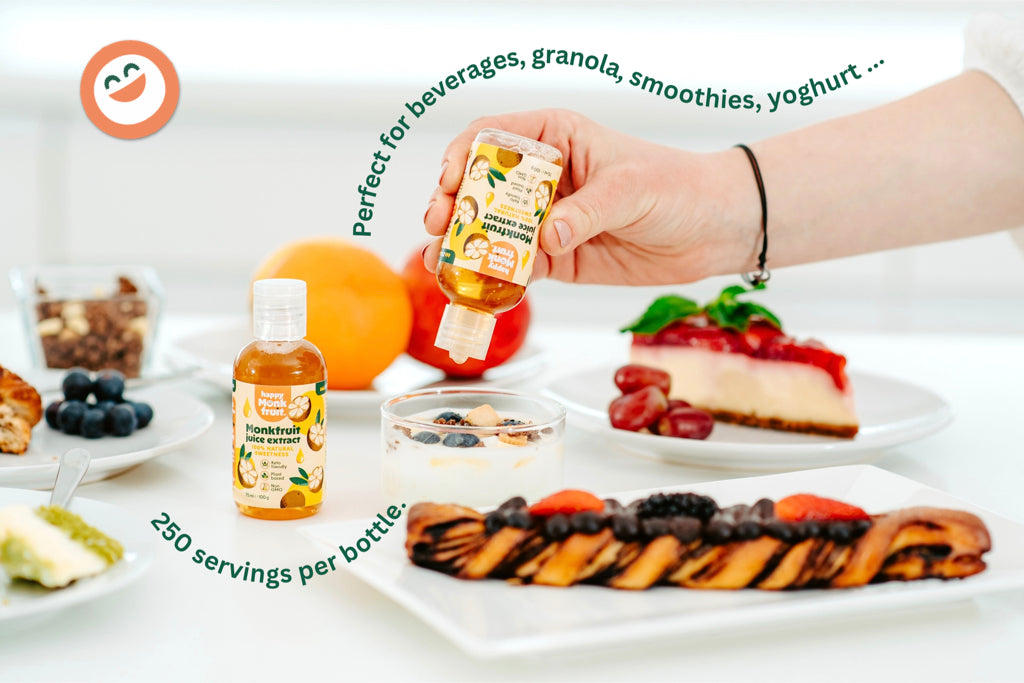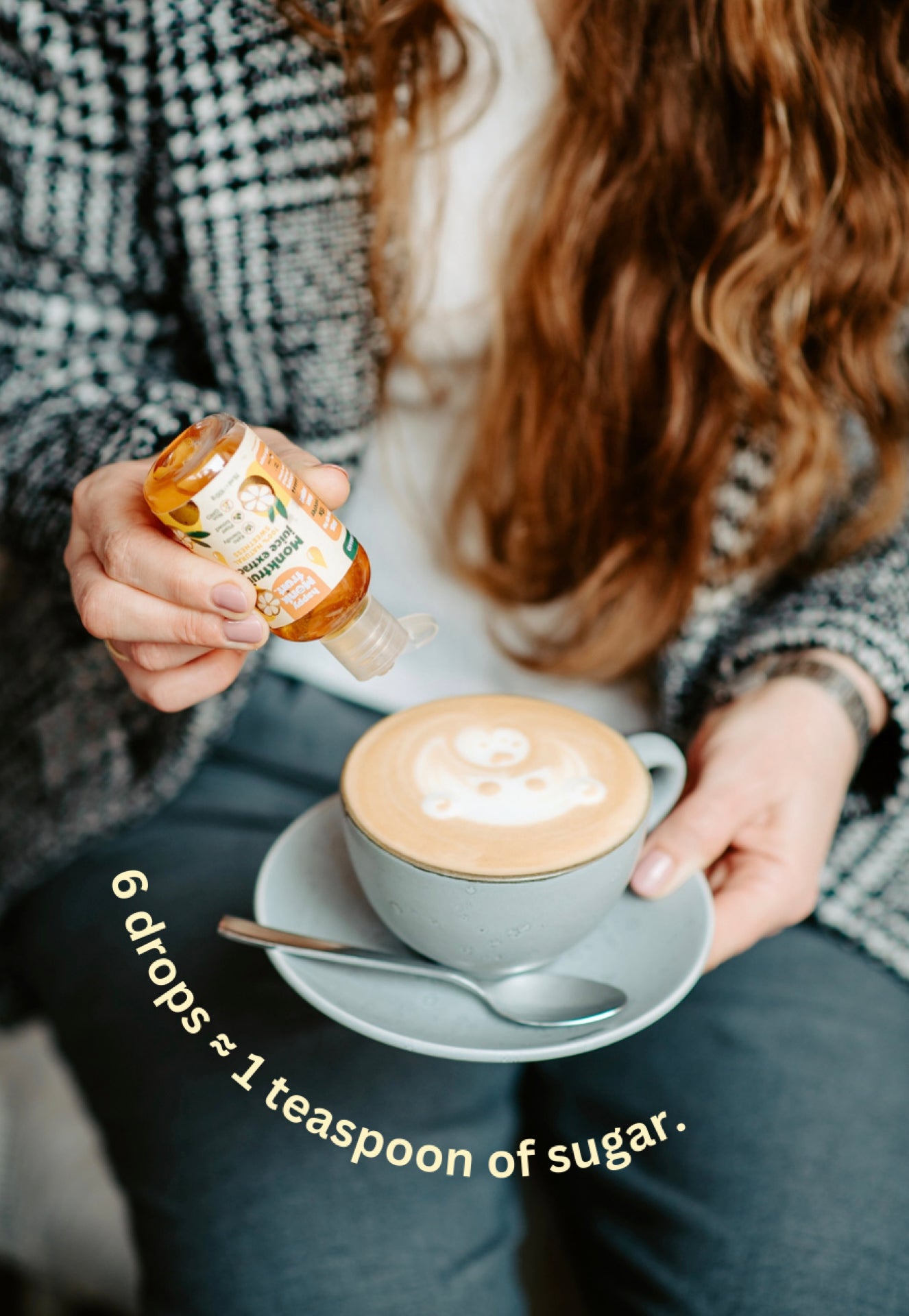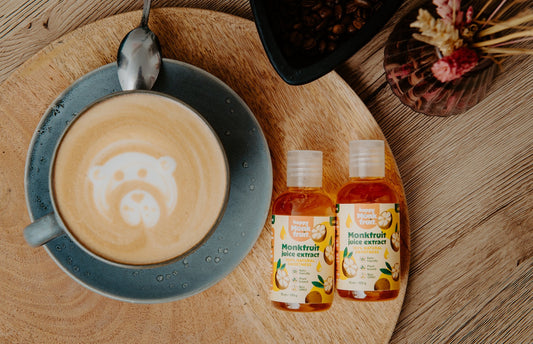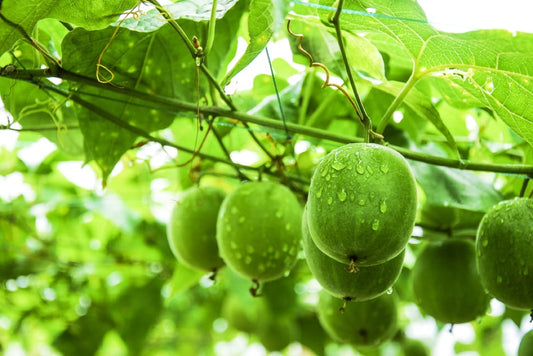
START A HAPPY LIFE
Use code: SWEET10 to Enjoy Natural, Sugar-Free Sweetness with No Bitter Aftertaste.
-

"Monkfruit is an all-natural, calorie-free sweetener with zero glycemic index. It is said to support the immune system, digestive tract, glands, and respiratory system."
-

"Another staple in traditional Chinese medicine, the monk fruit has gone global. Though you may not have noticed this trend ... in the West, it is being hailed as the best natural sweetener."
-

"Monk fruit sweetener is made from the extract derived from dried fruit. It contains zero calories and is thought to have antioxidant and anti-inflammatory properties."

NEW!
Enjoy Sugar-Free Sweetness!
Craving sweet without the junk? Grab this pure monk fruit sweetener - 100% natural, zero calories, no artificial BS!"



LIMITED TIME ONLY
Free Shipping - Anywhere in Europe!
No minimum order, no hidden fees. Fast and reliable delivery to all European countries.
The Story of Happy Monkfruit™
We’re a small team of friends—entrepreneurs, parents, and athletes—who care deeply about our families, our passions, and the future. We love sweets, but sugar wasn’t loving us back, and the alternatives didn’t feel right. Fake chemicals were a definite no, erythritol had health concerns, and stevia’s bitter aftertaste grew tiresome. Our search led us to monk fruit, a pure, natural sweetness that finally worked for us. Now we’re sharing this discovery, hoping it brings joy to your table just as it has to ours :)
Frequently Asked Questions
Where's my order?
We ship orders the same day, and they typically arrive within 3 days anywhere in Europe. While we always choose the best carriers, sometimes there can be delays beyond our control. If you have any issues or want an update on your order, just email us at hello@happymonkfruit.com and we'll help you out!
How does Monkfruit compare to Erythritol or Stevia?
Monkfruit is similar to Stevia, but while Stevia comes from barely edible leaves, Monkfruit is extracted from the fruit called Luo Han Guo.
Both Monkfruit and Stevia are about 15 times sweeter than sugar, but Monkfruit has a smoother, milder taste without the harsh aftertaste Stevia often has.
Erythritol, on the other hand, is a sugar alcohol that's actually less sweet than sugar, meaning you need to use quite a lot of it.
We created our Monkfruit sweetener because Stevia and Erythritol have been associated with some potential health concerns, like gut issues, heart problems, and hormone disruption and we simply don't want that for our families.
Monkfruit has been used safely for over 800 years without known side effects. It's even associated with anti-inflammatory and gut-friendly benefits, although we don't make any health claims about it.
Monkfruit has a pleasantly sweet taste and syrup-like texture that's ideal for yogurt, coffee, tea, desserts, or beverages.
What if I'm not satisfied with the taste?
We understand—everyone's taste is different, and Monkfruit can have a strong sweetness for some people. No worries! Just drop us an email at hello@happymonkfruit.com, let us know what's up, and we'll gladly give you your money back.
Can I use Monkfruit Sweetener for baking?
You can definitely bake with Monkfruit Sweetener, though it doesn’t caramelize or add the crunchy texture regular sugar does. It works best in creamy desserts, cake fillings, or recipes combined with other sweet ingredients like fruits, honey, maple syrup, or inulin to boost flavor.
You might need to experiment a bit to find your favorite method—check out some of our recipes for inspiration!
Does Monkfruit Sweetener have any aftertaste?
Yes monk fruit sweetener does have a bit of an aftertaste, but it's not bitter like stevia or some artificial sweeteners. It's more of a lingering sweetness that hangs around in your mouth longer than regular sugar would, since it's more concentrated.
Reactions vary. Some enjoy the extended sweetness, others find it off-putting. If you dislike the lingering effect, try using less or mixing it with other sweeteners for balance.
Why is your product more expensive?
There are a few reasons for that. Monkfruit is actually pretty challenging to grow - it's labor-intensive and only grows in mountainous regions, which makes harvesting much harder.
It also doesn't stay fresh for very long, so we have to process it right away after harvesting. It's more expensive to produce than something like stevia because we're using the actual fruit rather than leaves, which are more abundant and easier to harvest.
You might see some cheaper American brands of monkfruit out there, but those are processed differently and actually most of the time aren't legally approved for sale in the EU.
We follow all EU regulations, which impacts our pricing but ensures you're getting a properly vetted product.
Also, we sell pure monkfruit and don't add erythritol and other additives and hiding them in small letters on the back of the package :)
Is your company based in the EU?
Yes, we're an EU brand! All our products are bottled and labeled in Slovakia, and our bottles, labels, and all packaging are made in the EU.
The monk fruit itself comes from southern China since that's the only place where it naturally grows. Our team is a mix of Slovak, French, Italian and Irish folks.
-

Why Monk Fruit Is Your Coffee’s New Best Friend
Want to cut sugar from your coffee without losing that sweet spot? Monk fruit sweetener might be just what you need. It’s a natural, zero-calorie option that’s popping up everywhere,...
Why Monk Fruit Is Your Coffee’s New Best Friend
Want to cut sugar from your coffee without losing that sweet spot? Monk fruit sweetener might be just what you need. It’s a natural, zero-calorie option that’s popping up everywhere,...
-

Keto Lemonade with Monk Fruit & Turmeric
Looking for a refreshing drink that’s naturally sweet, low in sugar, and totally Instagram-worthy? This monk fruit lemonade is everything you want on a hot day—zesty, minty, and with a...
Keto Lemonade with Monk Fruit & Turmeric
Looking for a refreshing drink that’s naturally sweet, low in sugar, and totally Instagram-worthy? This monk fruit lemonade is everything you want on a hot day—zesty, minty, and with a...
-

Where Monk Fruit Comes From?
Monk fruit, or luo han guo as it’s called in China, has been thriving in the misty hills of Guangxi, southern China, for almost a thousand years. Back in the...
Where Monk Fruit Comes From?
Monk fruit, or luo han guo as it’s called in China, has been thriving in the misty hills of Guangxi, southern China, for almost a thousand years. Back in the...












